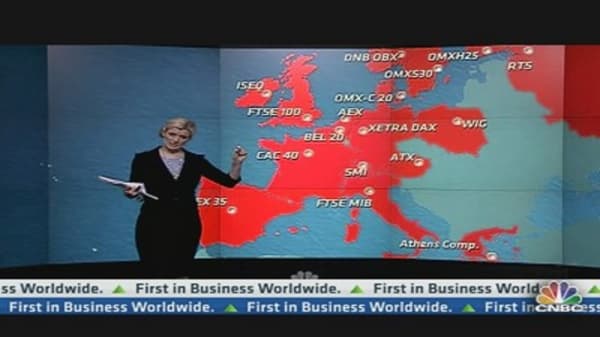A sharp fall on the Milan stock market hit European shares on Thursday, with uncertainty over this weekend's Italian elections pushing a key euro zone equity index to its lowest level since the start of 2013.
"Some institutional investors are starting to take profit ahead of the elections. There is a lot of uncertainty," one trader said.
The euro zone's blue-chip STOXX 50 index provisionally closed down 2.3 percent at 2,580.20 points, marking a fresh low for 2013 and sending it to its lowest close since ending at 2,575.25 points on Nov. 30.
The pan-European FTSEurofirst 300 Index fell 1.5 percent to 1,151.76 points - its worst finish since ending on 1,148.28 points on Feb. 7.
Italy's benchmark FTSE MIB was Europe's worst-performing stock market, falling 2.9 percent, on uncertainty over the outcome of the elections on Feb. 24-25.
Most investors expect a center-left government headed by Pier Luigi Bersani and backed by current prime minister Mario Monti to win and continue with reforms to tackle Italy's debt problems.
However, a resurgence by former leader Silvio Berlusconi has caused growing doubts over the outcome.
"If Berlusconi were to get more votes than currently forecast, and no government can be formed, it may provoke a market rout, with serious European contagion," said Integrated Asset Management head Emanuel Arbib.
Weak euro zone PMI (purchasing managers' index) data for manufacturing and services also dented sentiment.
"Equities have taken a sharp dip lower, exacerbated by weaker than expected flash PMI readings from France and Germany that fed into a weaker than expected compound euro zone reading," said Matt Basi, sales trader at CMC Markets.



